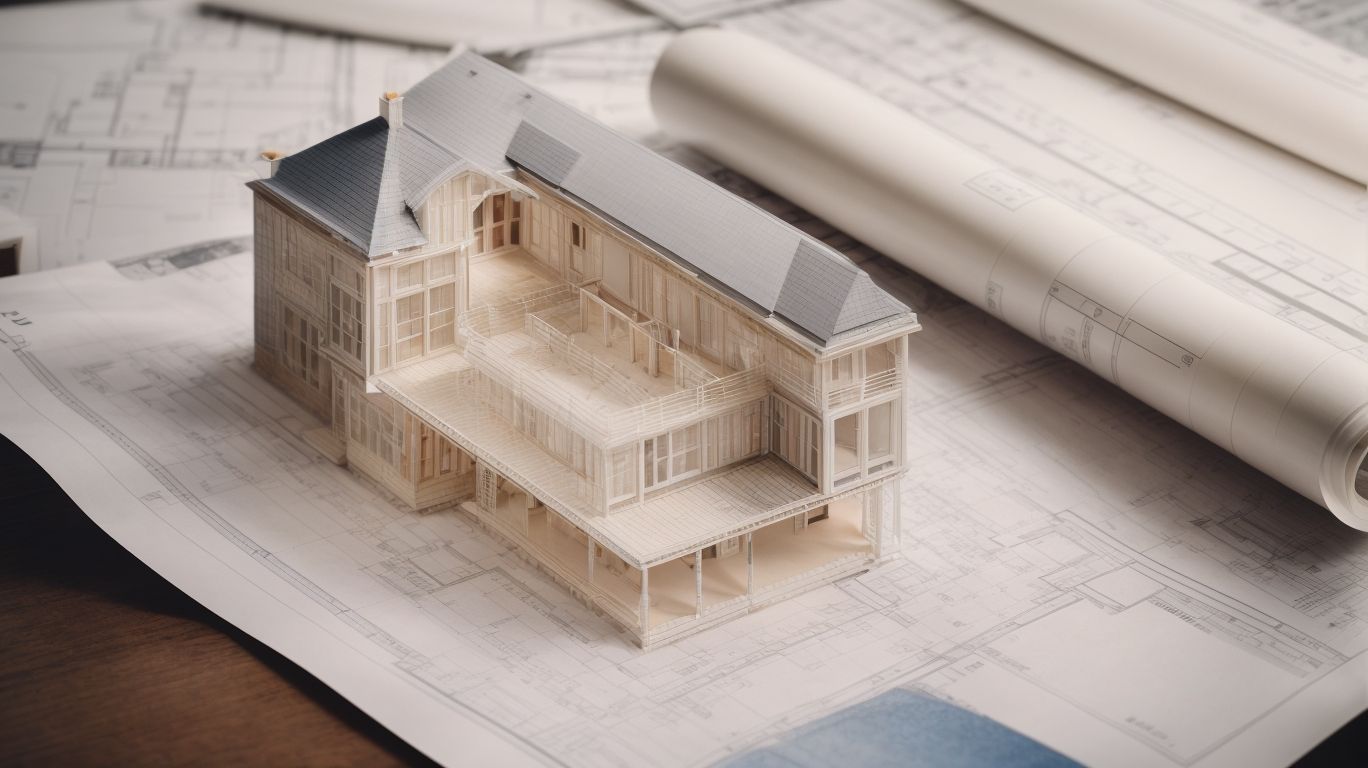
What to Look for When Hiring a Structural Engineer in SF
Are you in need of a structural engineer in San Francisco but not sure where to start? This article will provide you with all the information you need to know about structural engineers, including their qualifications, services offered, and how to find the right one for your project.
Whether you need a structural inspection, design and analysis, or seismic retrofitting, understanding what to look for in a structural engineer will help ensure your project’s success. So, let’s dive in and explore what to consider when hiring a structural engineer in SF.
What Is a Structural Engineer?
A structural engineer is a professional who possesses expertise in designing and overseeing construction projects, ensuring their structural integrity and safety.
Structural engineers are skilled in using advanced software and tools to analyze the structural components of buildings, bridges, and other infrastructure. Their duties involve working closely with architects to create building designs that meet safety standards and building codes.
They also conduct thorough inspections and offer recommendations for repairs or renovations to ensure the structure’s longevity and stability. With their specialized knowledge in materials, load factors, and environmental conditions, structural engineers play a crucial role in the success of construction projects.
Why Do You Need a Structural Engineer?
Hiring a structural engineer is essential to ensure the safety and stability of buildings, especially in areas prone to seismic activity. They specialize in seismic retrofitting and foundation design.
Their expertise in structural analysis enables them to assess the integrity of buildings and identify potential vulnerabilities. This allows them to implement solutions to mitigate structural risks.
By carefully examining the building’s materials, load-bearing capacity, and potential environmental impacts, structural engineers play a crucial role in ensuring that buildings can withstand various external forces, including seismic events. Through their knowledge and skills, they contribute significantly to the safety and resilience of structures, providing peace of mind to occupants and owners alike.
What Are The Qualifications of a Structural Engineer?
The qualifications of a structural engineer encompass a blend of education, experience, and licensure, ensuring their capability to undertake complex construction projects and meet regulatory standards.
Structural engineers typically have a bachelor’s degree in civil engineering or a related field, followed by additional training in structural engineering through a master’s degree or specialized courses. Their expertise is built upon years of hands-on experience in analyzing, designing, and inspecting structures. Obtaining a Professional Engineer (PE) license is a crucial step for engineers, as it allows them to oversee and manage projects, ensuring compliance with industry standards and regulations.
Education and Training
To become a structural engineer, individuals undergo rigorous education and training programs, acquiring the necessary qualifications and skills to excel in the field.
Structural engineers usually begin their career by obtaining a bachelor’s degree in civil or structural engineering. This educational background equips them with technical knowledge and critical thinking skills. They can then pursue advanced studies at the master’s or doctoral level, focusing on specialized areas like earthquake-resistant design or sustainable construction.
Hands-on experience through internships or co-op programs is vital for developing problem-solving abilities and applying theoretical concepts in practical situations. Additionally, continuous learning and staying updated with the latest advancements in building materials, construction techniques, and software tools are essential for a successful career in structural engineering.
Licensure and Certification
Licensure and certification play a pivotal role in verifying the competence and credibility of a structural engineer. These credentials showcase their adherence to professional standards and industry regulations, ensuring compliance with safety codes and legal requirements.
Obtaining licensure and certification not only demonstrates mastery of technical knowledge and skills, but also reflects a commitment to ethical practices and ongoing learning and development. Affiliation with professional organizations, such as the American Society of Civil Engineers or the National Council of Structural Engineers Associations, further enhances a structural engineer’s professional network and provides access to valuable resources for staying updated with the latest advancements in the field.
Experience and Specializations
A structural engineer’s experience and specializations encompass diverse aspects such as project management, structural analysis, and seismic retrofitting, showcasing their ability to handle complex construction challenges.
The expertise of structural engineers extends to foundation design and materials engineering, enabling them to construct efficient and sustainable structures that prioritize safety and longevity. Their attention to detail and problem-solving skills are crucial in ensuring that buildings and infrastructure can withstand environmental stresses and fulfill their intended purpose. Additionally, their familiarity with building codes and regulations, as well as their ability to work closely with architects and construction teams, solidifies their role as essential contributors to the construction industry, delivering secure and resilient structures.
What Are The Services Offered by a Structural Engineer?
Structural engineers provide a range of crucial services, including structural inspections, construction management, and structural design and analysis, ensuring the integrity and compliance of construction projects.
Building inspectors play a vital role in overseeing the implementation of building codes and regulations. Their main responsibility is to ensure that the structural components of a building meet safety standards.
They are also involved in project oversight, working closely with architects, contractors, and other stakeholders to ensure the smooth execution of construction projects. With their expertise in structural assessments and evaluations, they are able to identify potential issues and propose effective solutions, ultimately contributing to the overall success and safety of the construction process.
Structural Inspections
Structural inspections conducted by a qualified engineer are essential to assess building integrity, identify potential risks, and ensure compliance with safety standards. This underlines the importance of attention to detail in their work.
Engineers apply their expertise to thoroughly examine every aspect of a structure, from its foundation to its roof, identifying any signs of deterioration or potential vulnerabilities. Through meticulous attention to structural intricacies, they play a critical role in maintaining the safety and longevity of buildings.
By conducting comprehensive inspections, engineers can prevent structural failures, address potential hazards, and ensure that the structural components meet industry standards and regulations. This ultimately mitigates risk and safeguards the well-being of occupants.
Structural Design and Analysis
Structural engineers excel in the meticulous design and analysis of buildings, ensuring compliance with stringent building codes and regulations, while prioritizing safety and structural integrity.
Their expertise lies in the application of advanced engineering principles to develop innovative and efficient structural solutions.
They meticulously calculate loads and stresses, considering various dynamic factors such as wind, earthquakes, and temperature variations, to ensure the resilience and stability of buildings.
Their role includes collaborating with architects and construction teams to incorporate their designs seamlessly, enhancing the overall functionality and aesthetic appeal of the structures while adhering to industry standards and best practices.
Construction Management
The expertise of a structural engineer extends to effective construction management, encompassing project oversight, budgeting, and coordination, ensuring the successful execution of complex building projects.
Structural engineers play a crucial role in overseeing the structural integrity of buildings, ensuring compliance with safety standards and regulations. They are adept at coordinating with various stakeholders, including architects, contractors, and clients, to achieve seamless project progress.
Their keen eye for detail and problem-solving skills allow them to navigate challenging construction scenarios and make informed decisions to keep the project within budget and on schedule. Their expertise in project management and structural engineering is invaluable in delivering high-quality and durable construction outcomes.
Seismic Retrofitting
Structural engineers specialize in seismic retrofitting, employing their expertise to reinforce buildings against seismic hazards and enhance their safety and resilience. They play a critical role in safeguarding structures by utilizing their comprehensive understanding of building structures, materials, and dynamics to develop effective retrofit solutions.
This process often involves the implementation of innovative techniques such as base isolators and structural dampers, which can significantly reduce the impact of seismic forces. These engineers are also responsible for ensuring that buildings comply with stringent safety codes and standards, while minimizing disruptions to the building’s functionality during and after retrofitting.
Foundation Design
The expertise of a structural engineer in foundation design is instrumental in ensuring the stability and longevity of construction projects. They play a pivotal role in designing the foundational structural elements.
Their deep understanding of soil mechanics, structural analysis, and material properties enables them to design robust and durable foundations that bear the load and support the entire structure.
By factoring in various conditions such as soil types, environmental factors, and project specifications, structural engineers can tailor the foundation design to meet the specific needs of each construction project. This ultimately ensures its safety and structural integrity.
How Do You Find a Good Structural Engineer in SF?
When seeking a reliable structural engineer in San Francisco, it is crucial to consider testimonials, references, and the engineer’s track record, ensuring their suitability for your project needs.
When searching for a structural engineer, start by researching local firms and asking for recommendations from other professionals in the construction industry.
It’s also helpful to read testimonials and reviews on the engineer’s website or social media platforms to get a sense of their reputation and client satisfaction. Additionally, requesting references from previous clients can provide valuable insight into the engineer’s communication, problem-solving skills, and ability to meet deadlines.
As you evaluate potential engineers, prioritize experience by examining their portfolio and asking about similar projects they have completed in the San Francisco region. This thorough approach will help you find a credible and proficient engineer who is well-suited for your specific needs.
Ask for Recommendations
Seeking recommendations from industry professionals and peers can provide valuable insights into the expertise and reliability of a structural engineer, facilitating informed hiring decisions.
This approach allows individuals to tap into the wealth of experience and knowledge within the industry, gaining a deeper understanding of the engineer’s capabilities and track record. By leveraging these recommendations, one can better assess the engineer’s suitability for their specific project, ensuring that the chosen professional possesses the necessary skills and qualifications to deliver quality results.
The validation provided by trusted sources can instill a sense of confidence and reassurance in the hiring process, ultimately leading to successful collaboration and project outcomes.
Research and Compare
Conducting thorough research and comparing the qualifications and project portfolios of structural engineers in San Francisco is essential to identify the most suitable candidate for your construction needs.
When searching for a structural engineer, it’s essential to assess their qualifications and ensure they have the necessary licensing and certifications to meet industry standards.
One way to evaluate their capabilities is by examining their project experience, especially in similar construction projects. This can provide valuable insight and help you make an informed decision that aligns with your project requirements.
By carefully considering these aspects, you can choose the right engineer for your project and ensure a successful collaboration.
Ask About Their Project Experience
Inquiring about the project experience of a structural engineer allows for the assessment of their expertise, qualifications, and suitability for handling specific construction challenges, facilitating informed hiring decisions.
This evaluation process helps ensure that the engineer possesses the necessary skills to address diverse structural requirements.
Assessing their past project experiences provides insights into their ability to navigate complexities, work within budget constraints, and deliver high-quality results.
By investigating their track record, potential employers can gain confidence in the engineer’s proficiency in managing various construction scenarios, ultimately leading to the selection of a competent and reliable professional for the job.
Inquire About Their Fees and Contracts
Understanding the fees and contractual aspects offered by a structural engineer is crucial in aligning their services with your budgeting requirements and project scope, facilitating transparent and effective collaborations.
Transparency in financial matters is essential for both parties to ensure that expectations are met and there are no unforeseen financial surprises.
By discussing fees and contractual terms in advance, you can establish a collaborative agreement that respects your financial considerations while meeting the engineering needs of the project. This open dialogue allows for a smoother process and helps in avoiding misunderstandings or disputes down the line. It’s an important step towards a productive and mutually beneficial working relationship.




No Comments